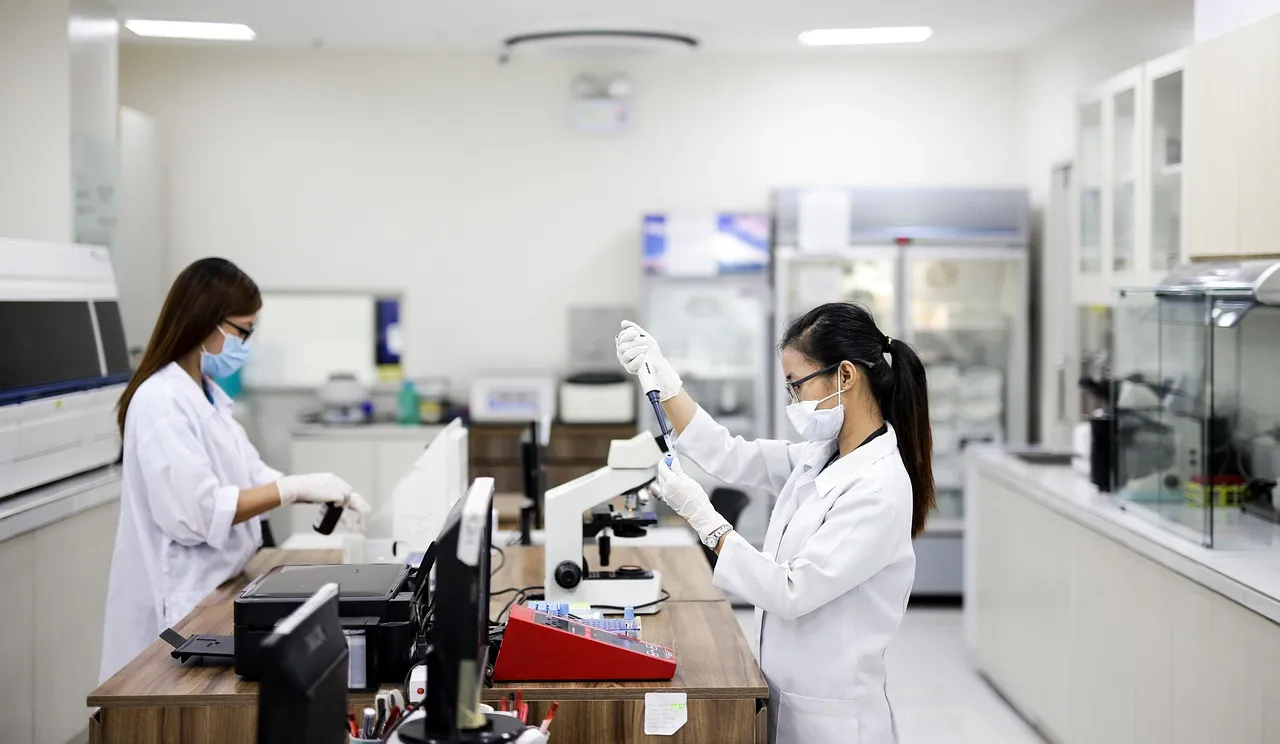
BioHub Maryland and Bowie State University Join Forces to Empower the Next Generation of Life Sciences Talent
In an ambitious initiative to cultivate a stronger, more diverse workforce in Maryland’s thriving life sciences sector, BioHub Maryland—powered by the Maryland Tech Council—has partnered with Bowie State University (BSU), Maryland’s first historically Black college and university (HBCU), to deliver hands-on biopharmaceutical manufacturing training to undergraduate students. This summer program, held at the state-of-the-art BioHub Maryland Training and Education Center in Rockville, gives two dozen students from BSU’s Department of Natural Sciences the rare opportunity to gain immersive, real-world experience in a field that is fast becoming one of the state’s most critical economic engines.
This partnership signals a transformative step in bridging academic study with in-demand workforce skills, aimed at closing both opportunity and talent gaps in biopharmaceutical production. Over the course of four intensive weeks, students receive direct exposure to essential lab practices that mirror real industry environments—training that is not only experiential but also designed to meet the rigorous demands of employers across Maryland’s biopharma ecosystem.
Launching Careers, Not Just Training Students
“BioHub Maryland doesn’t just train students—it launches careers,” emphasized Kelly Schulz, CEO of the Maryland Tech Council. “By working with Bowie State University, we’re ensuring a more robust pipeline of talent is ready to lead the next generation of biotech breakthroughs—right here in Maryland.”
Schulz’s statement reflects the strategic importance of the initiative: training programs like this one are not just educational offerings—they are career accelerators. Maryland’s life sciences industry has a pressing need for highly skilled workers, particularly in biopharma manufacturing, and there is a well-documented lack of access to such opportunities among underrepresented student populations. This program seeks to address both.
At the heart of this effort is a robust and practical curriculum focused on equipping students with the tools they need to succeed. The training covers foundational and advanced biopharmaceutical manufacturing skills, including upstream processing, cell culture techniques, aseptic procedures, quality control analysis, and regulatory compliance. These competencies are directly applicable to real-world production environments, where precision, safety, and scientific rigor are non-negotiable.
The curriculum is developed in collaboration with the National Institute for Bioprocessing Research and Training (NIBRT), an internationally respected provider of biomanufacturing education headquartered in Ireland. NIBRT’s training model is recognized globally for aligning classroom instruction with industry needs, and its adoption by BioHub Maryland ensures that students are learning from best-in-class standards. Upon completion, participants receive a certificate co-endorsed by BioHub Maryland and NIBRT—a credential that is increasingly valued by biopharma employers both within Maryland and nationwide.
A Training Ground Modeled After Real-World Biopharma Labs
The summer program takes place in BioHub Maryland’s newly launched Training and Education Center located in Rockville, Montgomery County. The 8,200-square-foot facility replicates operational biopharma environments, including areas for upstream and downstream processing, cell and microbial culture, biosafety cabinet procedures, analytical testing, and cleanroom simulations. Students interact with industry-grade equipment and follow protocols used in the development and manufacturing of therapeutic proteins, monoclonal antibodies, and vaccines.
The facility itself is a tangible manifestation of Maryland’s strategic commitment to workforce development in the life sciences. Funded with support from both Montgomery County and the State of Maryland, the Training and Education Center is designed to serve as a regional hub for upskilling and career placement. Its primary mission is to create direct pipelines from classroom learning to entry-level employment, career progression, and long-term economic mobility for Maryland residents.

“BioHub Maryland has one of the most dynamic biopharma clusters in the nation, and it’s essential that our workforce reflects that diversity and innovation,” said a BioHub Maryland spokesperson. “Programs like this help ensure that students—particularly those from underrepresented institutions like HBCUs—are not just included in the conversation but are driving it forward.”
Bowie State University: Catalyzing Scientific Talent Through Opportunity
The collaboration with BioHub Maryland is the result of intentional leadership at Bowie State’s Department of Natural Sciences, spearheaded by Chair and Professor Dr. George Ude and Associate Professor Dr. Supriyo Ray. Both educators were instrumental in securing the funding that made this initiative possible through a grant from the National Institute of Standards & Technology (NIST).
“This training program is a game-changer for our students,” said Dr. Ude. “It provides them with access to facilities and mentorship they otherwise wouldn’t have had, all while giving them a direct route into Maryland’s biotech workforce.”
Dr. Ray echoed the sentiment, emphasizing the alignment of the program with the university’s broader educational mission. “At Bowie State, we are committed to preparing our students for careers of consequence,” he said. “This partnership helps translate that vision into action.”
Students selected for the program undergo a competitive application process and must demonstrate a commitment to pursuing careers in biotechnology, pharmaceutical sciences, or related disciplines. For many, this will be their first exposure to industry-standard biomanufacturing protocols—an experience that could shape both their academic trajectories and professional aspirations.
Beyond technical training, students benefit from mentorship opportunities, site tours, career panels, and networking events hosted by BioHub Maryland and its extensive industry partners. These activities give participants not only insight into potential career paths but also a sense of belonging within an industry that historically has been difficult for minority and first-generation college students to access.
A Region Poised for Growth—and Talent Demand
BioHub Maryland is home to more than 2,700 life sciences companies and employs approximately 54,000 workers in the sector, according to state economic data. As part of the larger BioHealth Capital Region—which includes Northern Virginia and Washington, D.C.—Maryland ranks as the #3 biopharma cluster in the United States. This status is driven by a concentration of federal labs (including NIH, FDA, and NIST), academic research institutions, and a fast-growing roster of biotech firms ranging from startups to global enterprises.
However, this success has also created acute pressure on the regional workforce. As biomanufacturing capabilities expand, particularly in areas like cell and gene therapy, vaccine production, and mRNA therapeutics, the demand for qualified technicians, lab specialists, and manufacturing associates is outpacing supply.
Workforce development programs like the one being piloted with Bowie State University are critical to addressing that mismatch. Not only do they increase the pool of job-ready candidates, but they also help companies meet their diversity, equity, and inclusion goals—a key metric for many organizations seeking to build more representative teams.
Building a Scalable Model for the Future
While this summer’s program focuses on 24 students, the long-term vision is far more expansive. BioHub Maryland and the BioHub Maryland Tech Council are exploring how this HBCU partnership can be replicated across other institutions and scaled up to serve hundreds of students annually. Plans are also underway to create apprenticeship-style programs, dual-enrollment courses for community college students, and credentialing pathways that allow working professionals to transition into biopharma roles.
According to Schulz, the ultimate goal is to transform Maryland’s talent landscape. “We want to make Maryland the place where the best talent comes not just to work, but to be trained, mentored, and advanced,” she said. “This partnership with Bowie State University is the blueprint for how we get there.”
Testimonials from the Student Experience
Students who are participating in the program have expressed excitement and gratitude for the opportunity. “I didn’t know how biopharma manufacturing worked until I walked into that lab,” said one Bowie State student majoring in biology. “Now I can see myself doing this as a career. It feels real.”
Another student noted that the program helped connect classroom theory to practical application. “We learn about cells and proteins in our classes, but here we’re actually culturing them, monitoring growth curves, and preparing batches like they do in a real facility,” she said. “It’s inspiring and empowering.”
For first-generation college students and those without prior exposure to the industry, the experience is especially meaningful. “This program is opening doors I didn’t even know existed,” said another participant. “It’s given me confidence—and a clear sense of direction.”
A Vision Rooted in Equity, Innovation, and Economic Mobility
The BioHub Maryland-Bowie State University partnership exemplifies how targeted investments in training and education can yield transformational outcomes. It is not merely about skills acquisition—it is about access, representation, and building a future where Maryland’s life sciences industry is as diverse as it is dynamic.
By grounding the program in practical training, industry certification, and strategic mentorship, both organizations are laying the foundation for a more inclusive innovation economy. In doing so, they are not only preparing students for the jobs of today but also empowering them to become leaders in the industries of tomorrow.
As the summer program continues to unfold, its impacts are already being felt—by the students, their professors, and the broader life sciences community. And if the enthusiasm from participants and partners alike is any indication, this is only the beginning of a larger movement to transform talent development in Maryland from the inside out.





